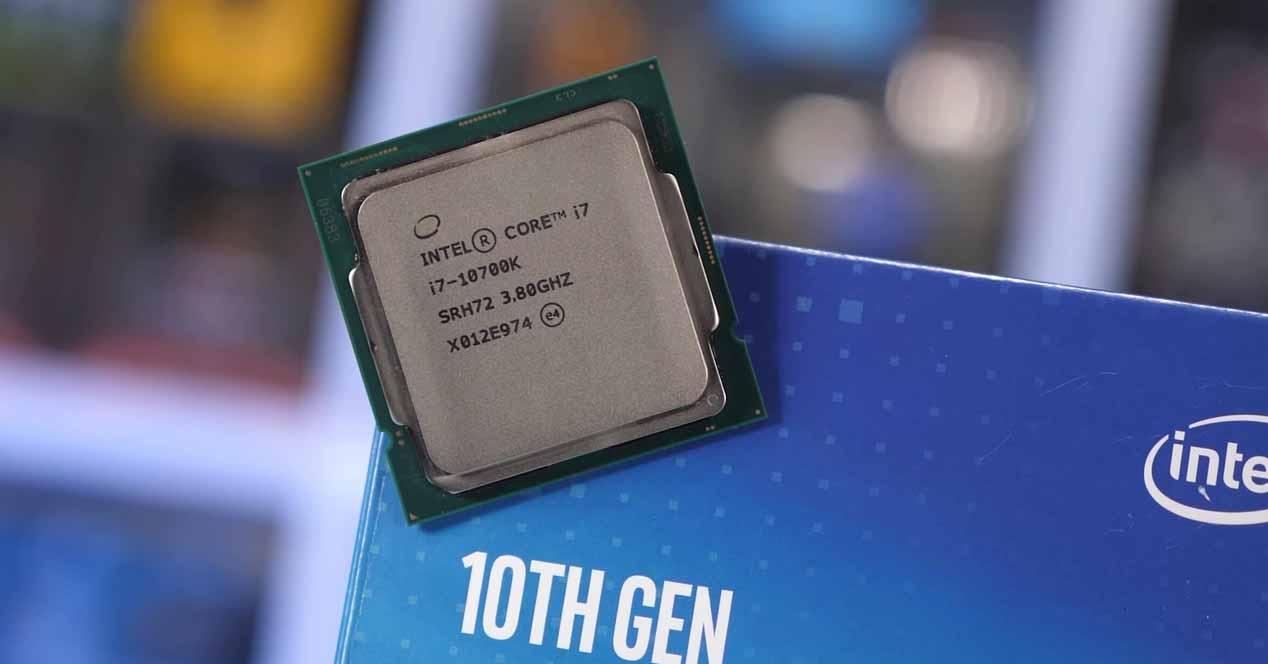Both processors hit the market in Q2 2020, and although they are of the same generation and based on the same 14nm lithography, they are aimed at different segments as the 10700K is aimed at PCs from high-end game, but the Le 10900K is aimed at enthusiasts and even the premium lineup, as it is the prelude to Intel’s HEDT processors. Of course, the price difference is more than obvious and here is the proof:
As of December 2020, the difference between these two processors, without promotion, is no less than 237 dollars, a good sum that can be used to buy a better range of graphics cards or a higher capacity SSD, for example. Is it really worth it for its gaming performance?
Intel Core i7-10700K vs Core i9-10900K, differences in their specifications
The Core i7-10700K is an 8-core, 16-thread processor thanks to the brand’s HyperThreading technology, with a base speed of 3.8 GHz but increasing to 5.1 GHz in Turbo mode. It has 16MB of Intel Smart Cache and its TDP is 125 watts (with configurable TDP drop to 95W).
For its part, the Core i9-10900K has 10 cores and 20 processing threads which operate at a base frequency of 3.7 GHz but whose maximum turbo speed is 5.3 GHz, and also has the Intel Thermal function. Velocity Boost for an extra level of performance when temperatures permit, something the Core i7 lacks. The cache is also a bit higher, at 20MB, but otherwise it’s exactly the same as the 10700K including TDP.
Both are processors with the multiplier unlocked and therefore capable of overclocking, and both use the brand’s 10th generation Intel LGA1200 socket. They support a maximum temperature of 100 ° C (Tjunction) and integrate an Intel UHD 630 iGPU, although it is true that, as we have already mentioned, it is not that this GPU is very suitable for gaming, and in fact it would be strange if whoever buys one of these processors for a high end PC does not come with a dedicated graphics card as a result.
Game performance, is there a big difference?
In the following video, they show the difference in performance of an Intel Core i9-10900K compared to a Core i7-10700K (also compared to a Core i5-10600K, which is Intel’s best-selling processor for games), using the same hardware to test all three processors: an ASUS ROG STRIX Z490-A Gaming motherboard, 32 GB of G.Skill TridentZ RGB 3600 MHz RAM and an MSI GeForce RTX 2080 Ti Ventus.
All testing was performed at 1080p resolution and with graphics settings set to Ultra.
We are going to roll out the games. Starting with Second World War, We see that obviously the Core i9 is the best but the difference compared to the Core i7 is only 4 FPS, and in fact we are talking about more than 200 FPS on average, so it does not matter. In addition, it should be noted that the 10900K is only 16% of its capacity while the 10700K is running at 38% of its capacity, which means that the Core i9 will be cooler and consume less power.
We are going to Red Dead Redemption 2, where all three processors get the same FPS rate (1 FPS minus the Core i5 in this case), but then again there is a noticeable difference in CPU usage, with the 10900K running at 32% and the 10700K running at a 73%. In Far Cry New Dawn
In Assassins Creed: Odyssey the difference is again 2 FPS between the two processors, while in Battlefield v they all get the same frame rate per second. In Need for speed: heat, the Core i9 only gets 3 FPS more than the Core i7, and only 3 FPS more than the Core i5, so the difference is again insignificant. In Shadow of the Tomb Raider, the i9 gets 6 FPS more than the i7, and this 6 FPS more than the i5; finally in CS: GO we see a bigger difference (28 FPS between Core i9 and Core i7, and 27 FPS between Core i7 and Core i5), but we are talking about over 500 FPS so it’s not something the user is going to notice. nothing.
The bottom line is that for a high-end gaming PC there is hardly any difference in gaming performance between using a Core i7-10700K or paying over $ 200 than the Core i9- 10900K costs more. The latter is a much more powerful processor, but it doesn’t represent a noticeable improvement in games to be worth it, and any gamer would gain more by investing that difference in cash by jumping, say, from an RTX 3070 to an RTX. 3080.









